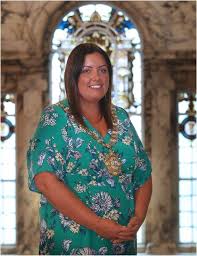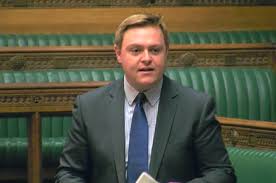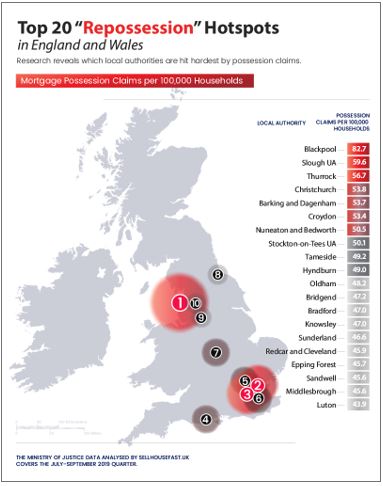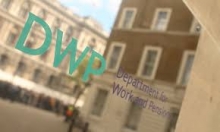Work TV
Watch our TV Channel dedicated to the ‘World of Work’. Explore our video library for informative videos featuring career opportunities at leading companies, franchising opportunities, further education and recruitment professions and their services.
Simon Collyer
The January Blues and Mortgage Repossessions Are Both on The Increase Says the Data
REPOSSESSIONS - The top 20 repossession hotspots England and Wales are shown below.
Mortgage possession claims increased by 42% in 2018. Furthermore mortgage orders for possession, warrants issued, and repossessions also increased by 35%, 31% and 29% respectively.
Blackpool is currently the most affected repossession hotspot in England and Wales, holding 82.7 (83) mortgage possession claims per 100,000 households. Followed by Slough – at 59.6 (60) and Thurrock – at 56.7 (57.)
Alternately, Sellhousefast.uk found the three local authorities with the fewest mortgage possession claims to be: Broadland (5.3 per 100,000 households), Woking (4.8) and Maldon at 3.6.
The Isles of Scilly had no mortgage possession claims in this period.
According to leading debt charity, StepChange mortgage arrears is – jointly with electricity bills and secured loans – a cause of concern for 18% of households** across the UK. Typically, the average arrears amount, relative to mortgage, is a total of £3,005
As Christmas and New Year celebrations come to an end and people head back to work, the January Blues have come forward in full force. Stress of increased financial pressure from Christmas debts and emotions running low from failed New Year’s resolutions, it is no surprise that many Britons are struggling with their mental health. This has been characterised by reports of increased isolation, social anxiety and indulgence in destructive vices over the Christmas period and into January.
The failure rate of most New Year's resolutions is shocking; recent studies give a failure rate of between 75% and 85% before the end of January, while mid-February sees a drop-out rate of between 90-95%. Those who have a history of drug and alcohol addiction are at particular risk during the January Blues, as temptation to imbibe increases due to the inevitable emotional crash people feel after the festive season. Mental health treatment specialists Smart TMS now reveal the extent of the effect of January Blues on people across the country:
- 1 in 3 Brits (32%) report a significant decline in enjoyment and satisfaction at work
- 1 in 4 Brits (25%) said they find themselves regularly cancelling plans more often so they don’t have to interact with other people
- Almost 1 in 4 (24%) find even basic functions (e.g. sleeping, showering) more difficult
- Over half (58%) have witnessed a friend, family member or acquaintance experience a significant deterioration in mental and physical health as a result of alcohol, smoking or drug use
- 1 in 5 (25%) of Brits say they are too busy to see a medical professional regarding their mental health
ABC Note: Thanks to Gerard Barnes is the CEO of Smart TMS - the UK and Ireland’s leading provider of TMS therapy and https://www.sellhousefast.uk/ for bringing us this cheery news this morning.
ABC Comment, have your say below:

Government Accused of Deliberately Attempting to Kill a Disabled Benefit Claimant
DISABILITY - Several claimants with disabilities have alleged that the government were deliberately killing disabled claimants with their policies.
This might seem far fetched but some of the people making these allegations have been highly educated.
Eugenics is the practise or advocacy of improving the human species by selectively mating people with specific desirable hereditary traits. It aims to reduce human suffering by “breeding out” disease, disabilities and so-called undesirable characteristics from the human population.
Early eugenic ideas were discussed in Ancient Greece and Rome. The practice of killing babies that did not conform to the Spartan ideal by leaving them on the hillside to die was an accepted practice.
Plato believed human reproduction should be monitored and controlled by the state.
This is from Wikipedia
In September 1903, an "Inter-departmental Committee on Physical Deterioration" chaired by Almeric W. FitzRoy was appointed by the government "to make a preliminary enquiry into the allegations concerning the deterioration of certain classes of the population as shown by the large percentage of rejections for physical causes of recruits for the Army", and gave its Report to both houses of parliament in the following year. Among its recommendations, originating from professor Daniel John Cunningham, were an anthropometric survey of the British population. The Catholic church was opposed to eugenics, as illustrated in the writings of Father Thomas John Gerrard.
In the United Kingdom, eugenics never received significant state funding, but it was supported by many prominent figures of different political persuasions before World War I, including: Liberal economists William Beveridge and John Maynard Keynes; Fabian socialists such as Irish author George Bernard Shaw, H. G. Wells and Sidney Webb; and Conservatives such as the future Prime Minister Winston Churchill and Arthur Balfour.The influential economist John Maynard Keynes was a prominent supporter of eugenics, serving as Director of the British Eugenics Society, and writing that eugenics is "the most important, significant and, I would add, genuine branch of sociology which exists".
Its emphasis was more upon social class, rather than race. Indeed, Francis Galton expressed these views during a lecture in 1901 in which he placed British society into groups. These groupings are shown in the figure and indicate the proportion of society falling into each group and their perceived genetic worth. Galton suggested that negative eugenics (i.e. an attempt to prevent them from bearing offspring) should be applied only to those in the lowest social group (the "Undesirables"), while positive eugenics applied to the higher classes. However, he appreciated the worth of the higher working classes to society and industry.
The 1913 Mental Deficiency Act proposed the mass segregation of the "feeble minded" from the rest of society. Sterilisation programmes were never legalised, although some were carried out in private upon the mentally ill by clinicians who were in favour of a more widespread eugenics plan. Indeed, those in support of eugenics shifted their lobbying of Parliament from enforced to voluntary sterilization, in the hope of achieving more legal recognition.But leave for the Labour Party Member of Parliament Major A. G. Church, to propose a Private Member's Bill in 1931, which would legalise the operation for voluntary sterilization, was rejected by 167 votes to 89. The limited popularity of eugenics in the UK was reflected by the fact that only two universities established courses in this field (University College London and Liverpool University).
The Galton Institute, affiliated to UCL, was headed by Galton's protégé, Karl Pearson.
In 2008, the British Parliament passed a law prohibiting couples from choosing deaf and disabled embryos for implantation.
In the USA WW1 troops selected to join the Army and fight were from the lower percentile of society. Battalions of soldiers that were 'feeble-minded' were sent into action in the Vietnam War with huge losses. The morality of sending people into a battle that could hardly load or aim a gun has long been debated.
We came across this letter from Theodore Roosevelt recently:
Unethically obtained data generated by the Nazis was used in the Cold War where high altitude flying was used to spy on the Soviets. Intercontinental ballistic missiles came from the German V1 and V2 research as examples.
In a one-child state China, baby girls were less valuable than boys and risked being killed at birth. Young Christian families would travel to the US to adopt these surplus children.
This is such a controversial topic we would not like to comment it, but we have just been contacted by a claimant who was adamant the DWP was trying to kill him. He took his complaint to the police.
We pointed out that in criminal law there are two requirements you have to fulfil. Criminal law classically describes offences as being composed of two elements: the mens rea and the actus reus. The mens rea is the guilty mind and the actus reus is the guilty act. The words come from a Latin maxim that holds there to be no punishable act that is not the result of a guilty mind. Proving intent would pose a lot of difficulties.
President Nixon with the CIA looked into creating conditions where civil rights activist Martin Luther King could be driven to commit suicide, but the idea was not proceeded with. One is six persons killed in the last century were killed by their own governments.
ABC Comment, have your say below:

Boris Johnson Hears About Welfare Reform Failings in Northern Ireland
NORTHERN IRELAND - Communities Minister Deirdre Hargey MLA today highlighted concerns on the Welfare Reform system with the British Prime Minister Boris Johnson.
The Minister was speaking after a meeting with Executive colleagues and Mr Johnson to discuss the budget out workings of 'New Decade, New Approach'.

Image: Communities Minister Deirdre Hargey MLA.
Speaking afterwards Minister Hargey said: “I used the opportunity to inform the British Prime Minister Johnson of my views on Welfare Reform which I believe is having a negative impact on people here and needs to be reversed.
"These austerity measures are punishing the most disadvantaged in our society.
"I also raised the serious concerns that I and many others have with the punitive two child cap policy, which will exacerbate child poverty, and also the special rules for claiming benefits for people with a terminal illness.
“I highlighted the need for recurrent funding for welfare mitigations in order to protect those already struggling as a result of welfare reform, from being penalised further.
"My Department is working at a pace to ensure that in line with “New Decade, New Approach” the immediate matter of extension of welfare mitigations takes place from 31st March.”
ABC Comments, have your say below:

Housing Benefit Freeze Lifted in April, Minister for Welfare Delivery, Will Quince Announces
WELFARE FREEZE ENDS - The freeze on Local Housing Allowance rates that has been in place since 2016 has today (13 January 2020) been lifted by the Minister for Welfare Delivery, meaning that rates will rise by inflation from April.
There are around 1.4 million people in the private rental sector receiving Local Housing Allowance, and this change will provide an average of around £10 extra a month to affected households in the private rented sector.
And since 2011, the government has provided local authorities with over £1 billion in Discretionary Housing Payments to protect the most vulnerable claimants. An additional £40 million was also made available for next year’s Discretionary Housing Payment fund to help affordability in the private rented sector.

Image: Rt. Hon Will Quince, Minister for Welfare Delivery,
Minister for Welfare Delivery, Will Quince, said:
This government is levelling up opportunity across the UK, and this will be a welcome increase for more than a million people as we provide more money to help pay for housing.
We are committed to tackling all forms of homelessness - ending the freeze on housing benefits is just one part of achieving this. We have announced an additional £263 million to help councils provide better support to homeless people, and importantly, prevent people from becoming homeless in the first place.
We will continue to work with the Ministry for Housing, Communities and Local Government, and others across government, to find ways to support the cost of living in the rented sector.
This announcement follows a commitment to end the benefit freeze made in November, which means other benefits will also rise by inflation.
Millions of people on Universal Credit, as well as those on the old benefits system, will also see their payments rise by inflation.
What do people need to do to receive the increase?
Payments will increase automatically – they do not have to apply to receive the extra cash and should see a change in their housing payments after 1 April 2020.
ABC Comment, have your say below:

DWP Underpayment Errors Has Doubled
DWP ERRORS - New analysis reported on by the SNP shows that the proportion of claimants who have been underpaid due to official errors has risen by 86% to almost 1,000 since 2011/2012.
The total number of claimants underpaid by the DWP has risen by 64% since then.
2010/11 2018/19
Total: 1240 Total: 2033
Official Error: 392 Official Error: 729
Claimant Error: 837 Claimant Error: 1296
Fraud: 11 Fraud: 8
ABC Comment, have your say below:

Employment in Canada Exceeeds Forcasts
CANADA - The Canadian economy added 35.2 thousand jobs in December of 2019 after shedding 71.2 thousand in the previous month, which was the biggest decline since January of 2009.
It compares with market expectations of a 25 thousand gain. Employment increased in Ontario (25K), Quebec (21K), Manitoba (2.8K) and Prince Edward Island (1.1K), while a decline was recorded in Newfoundland and Labrador (-5K).
There were more employees in the private sector (57K) in December, offsetting a decline of a similar size in November. Employment increased in accommodation and food services (25K) and in construction (17K), while it was little changed in the other industries. Considering full 2019, employment in Canada increased by 320K or 1.7%, a faster pace than 1.1% in 2018.
The growth was spread across the first three quarters of the year and was mostly the result of gains in full-time work (283K).
ABC Comment, have your say below:

Malaysia Jobless Rate Inches Lower To 3.2% In November
MALAYSIA - The unemployment rate in Malaysia ticked down to 3.2 percent in November 2019 from 2.3 percent in the same month the previous year. The number of unemployed fell 0.4 percent from a year earlier to 513.9 thousand, while employment rose 2.5 percent to 15.31 million.
Also, the labor force grew 2.4 percent to 15.83 million.
On a seasonally adjusted basis, the jobless rate edged up to 3.3 percent in November from 3.2 percent in October.
ABC Comment, have your say below:

Jobcentre Staff Visit The Streets To Advise Homeless People On Getting Jobs
DWP - The new government scheme will provide rough sleepers with help finding jobs
A new government scheme will see Jobcentre staff working on the streets to advise homeless people on accessing benefits, accommodation and gaining employment.
A £3 million fund is currently being set up to finance the scheme, which ministers hope will allow staff to engage with rough sleepers actively rather than just focusing on those who are already seeking help.
Jon Sparkes, Chief Executive for Crisis, has said "The DWP has an important role in preventing and ending homelessness. It’s essential that people forced to live on our streets and in temporary accommodation face no barriers to accessing benefits that can help them into a stable and secure home. We would welcome working with the government on this.
"However, the only way to end homelessness is to tackle the root causes by urgent investment in housing benefit and in building affordable housing. Without these people will continue to have to choose between food and rent and end up being forced into homelessness."
ABC Comment, have your say below:

ABC Readers - We Like Your Comments
FEEDBACK - We would just like to thank all those who have left 'Comments' recently. Some lovely remarks and a special thank you to Vicky who visits our website everyday while having her morning cup of coffee she says.
We must say a special hello to our Scottish readers for whom we have suddenly attracted large numbers. Our articles get visited over time and we have some 3,200 on-line in the library/back catalog: https://www.abcorg.net/all-news. Sometimes an article can suddenly explode with interest and we know it has gone viral.
We have some new developments coming along and we plan to do a lot more on the rest of the website. Especially... starting next week...our much neglected, Event's section is getting a wash and brush up.
We thank you all for continuing to visit and giving us your support. It is nice to get feedback and we enjoy talking to people learning about your experiences.
Best wishes,
Simon COLLYER
Founder
Northern Ireland - New Assured Skills Academy at NRC Offering 20 Training Places In Logistics
TRAINING OPPORTUNITY - The Department for the Economy and Northern Regional College are offering 20 Assured Skills Academy training places for people to train as logistics and transport coordinators.
Participants in the Assured Skills Academy will receive six weeks of industry-relevant pre-employment training at NRC’s Newtownabbey Campus leading to an industry recognised qualification. Successfully completing the course also guarantees a job interview. The Academy is open for applications on Monday 13 January 2020.
Graeme Wilkinson, Director of Skills at the Department for the Economy, said: “This Assured Skills Academy at NRC is a great opportunity for anyone seeking a new career in logistics and transport. The course will equip participants with the necessary skills to compete for a role in a local company with immediate vacancies.”
Participants will also receive a weekly training allowance of £150, travel expenses, and may be eligible for childcare allowance.
Mr Wilkinson added: “I urge anyone interested to submit their applications at the earliest opportunity.”
Julie Powell of Northern Regional College said: “NRC has a track record of providing high quality industry-focussed training that enables people to compete for jobs in a range of sectors. Partnering with local businesses and the Department for the Economy helps us to ensure that people who complete the Transport and Logistics Assured Skills Academy are in a strong position to compete for a permanent job.”
Applicants for this Assured Skills Academy must be 18 years old by 24 February 2020 and hold at least one A level at grade A-C, or equivalent qualification. No experience in the field of logistics or transport coordination is necessary.
For more information and details of how to apply, visit www.nidirect.gov.uk/assured-skills

Applications open Monday 13 January 2020 and close Friday 31 January 2020.
The six local companies with vacancies in this role are:
- • DFDS Logistics Ltd, Belfast
- • McBurney Transport, Ballymena
- • Woodside Logistics Group, Ballynure
- • Lynas Foodservice, Coleraine
- • TST Transport, Ballymena
- • WestRock, Newtownabbey
ABC Note: In a general business sense, logistics is the management of the flow of things between the point of origin and the point of consumption to meet requirements of customers or corporations. ... A professional working in the field of logistics management is called a logistician.
ABC Comment, have your say below:




























